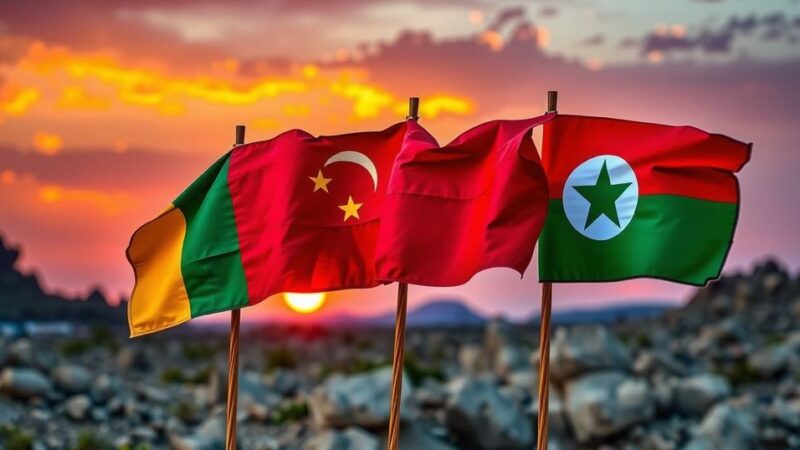Ana Toni, Brazil’s Cop30 Chief Executive, warns that countries must enhance climate action alongside defense spending to prevent future wars driven by inequality and poverty. The upcoming Cop30 conference in Belém calls for stringent emission reduction plans amid geopolitical complexities. Toni highlights that climate change poses long-term threats to security and urges nations to view it as part of their overall defense strategy.
Ana Toni, the chief executive of Brazil’s Cop30 summit, has emphasized the necessity for countries to enhance their climate initiatives in tandem with defense spending. She cautioned that neglecting climate action could lead to increased wars due to rising inequalities and poverty exacerbated by climate change. In her perspective, climate change should be viewed not as separate from global security issues but as integral to them.
Scheduled to take place in Belém, Brazil, the upcoming Cop30 conference aims for all participating nations to present comprehensive plans to reduce greenhouse gas emissions. However, the event is overshadowed by geopolitical tensions, as many developed nations reassess their defense budgets in light of security threats, particularly surrounding the US’s stance under Donald Trump, who has withdrawn from the Paris Agreement.
Toni articulated that countries should not face a dichotomy between climate and defense, emphasizing that climate inaction could jeopardize future security. She stated, “Wars come and go. Unfortunately, climate change is there for a long time. We need to take climate change very seriously, otherwise we will have even more wars in the future.”
Germany has recently allocated €100bn over 12 years for climate initiatives while significantly increasing its defense budget, illustrating a unified strategy. Conversely, the UK has reduced overseas aid to finance its own defense expenditures, a decision that Toni criticized as detrimental to global climate efforts.
In collaboration with the Azerbaijani government, Brazil is developing a roadmap to help fulfill the commitment of providing $300bn annually in climate finance to developing nations by 2035. Toni expressed optimism that nations like China would continue to lead in climate action despite possible shifts in US policy under the Trump administration, as they recognize the economic benefits of decarbonization.
Furthermore, she suggested that developing countries could present their nationally determined contributions (NDCs) as investment strategies, integrating climate considerations within their broader socio-economic development plans. Toni concluded that it is essential to intertwine climate strategies with development agendas, stating, “You cannot think about development any more without having a climate perspective.”
In summary, Ana Toni urgently calls for nations to harmonize their climate efforts with defense spending to bolster global security. She warns that neglecting climate issues could lead to increased conflict due to heightened inequalities. While countries differ in their approaches to funding, the imperative remains clear: thoughtful integration of climate strategies into economic planning is essential for sustainable development and global stability.
Original Source: www.theguardian.com






